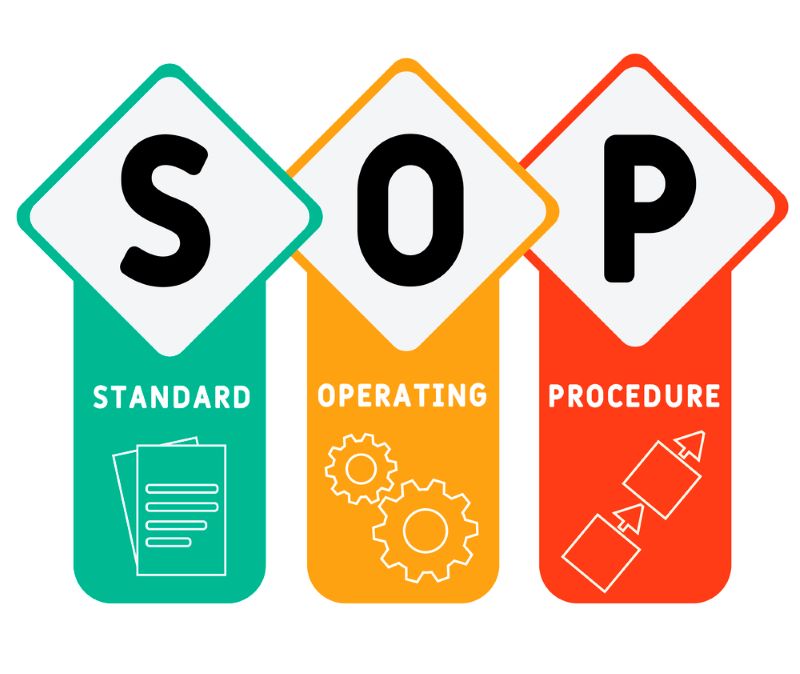Most business owners are big picture thinkers. They have amazing ideas and typically run with them. And if things work out – great! They keep on moving, hiring team members to help them grow. But how does a business owner relay the “how” and “why” to these new team members? Through documented standard operating procedures (SOPs)!
In the hustle and bustle of a small business, writing the “how” and “why” down is the last thing on your to-do list. But it’s important to do, even critical to long-term success. Keep reading!
Standard Operating Procedures Set the Stage for Your Small Business
Simply put, SOPs outline your business operations. The content within SOPs varies from business to business, but the types of SOPs are very similar.
1. Onboarding and Training
- New team members truly appreciate an organized start on their first day. Make an amazing first impression by having a standard onboarding and training session.
- Provide new team members with a mentor or go-to person that they can ask questions.
- Share the SOPs with new team members right away, so they understand your business and their role in it.
- Be available for any questions about the SOPs and why they are important.
2. A Repository for Intellectual Property
- Think of all the documents that you have created up to this point to keep your business running smoothly. There’s so many that it is hard to capture them all here. But here’s a great example:
- Company ABC is a boutique recruiting firm that takes over the recruiting function for small businesses. In addition to job post templates, reference/employer check SOPs, and “how-to use” manuals on the technology used daily, the company keeps its vision and mission statements, financials, and performance metrics inside the SOP repository.
- Products and services are outlined here, along with internal job descriptions within Company ABC.
- Identify the technology that will house your intellectual property; is it Google Drive, Dropbox, or OneDrive that is used.
- Company ABC is a boutique recruiting firm that takes over the recruiting function for small businesses. In addition to job post templates, reference/employer check SOPs, and “how-to use” manuals on the technology used daily, the company keeps its vision and mission statements, financials, and performance metrics inside the SOP repository.
3. In Case of Emergency (ICE)
- Have you ever considered what happens to your business if something happens to you? What happens when a pandemic or natural disaster affects operations? Most of us have not given that much thought!
- According to Business.com, natural disasters can close the doors of up to 40% of small businesses. It makes sense to have a comprehensive plan.
- It’s simple to get an ICE SOP started; obtain and document the emergency contact information for all of your team members, including you. Designate a point of contact in case you are hospitalized or otherwise unavailable.
- Revisit your ICE every year, and update it when new team members are added.
Include Best Practices in Your Standard Operating Procedures
What is the difference between Best Practices and SOPs?
Best Practices change more frequently as the business grows. They are often more detailed and outline how to do a process. When new products or services are introduced, revisit both SOPs and Best Practices. Do they need to be updated as a result of changes, or are they fine as is?
Delegate this task to your Administrative Assistant, Office Manager, or Online Business Manager. Ask that person to update you on the potential changes that need to be made, and then make updates. Communicate these changes to the entire team during a staff meeting.
Conclusion
How can you get started documenting SOPs now that you understand their importance? Obviously, as a business owner, you can spend your extra time researching and forming SOPs for your business. But do you have time to do that while you are conducting sales calls and putting out fires?
Probably not. Outsourcing SOP creation and documentation is usually what most small businesses choose to do. Expert Virtual Services offers SOP creation and documentation as one of our offerings. And because you took the time to read this blog, we will gladly share with you what exactly goes into the “In Case of Emergency” SOP in a complimentary discovery call. Schedule your call today!

